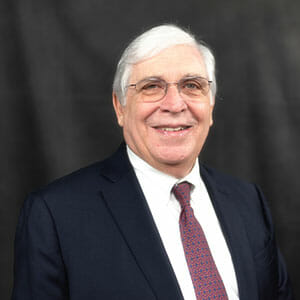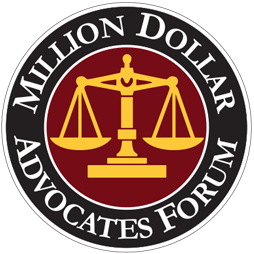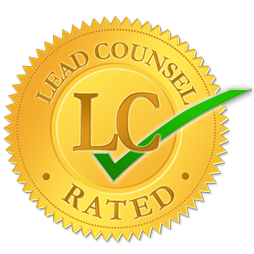California defines elderly as age 65 or older. But estate-related fraud can strike anyone, regardless of age. An experienced attorney, however, can prevent fraud in the first place—and recover compensation if fraud has occurred. To learn whether we can help you, call Hackard Law today or contact us online.
Trust Fraud Basics
It helps to know the key terms used with trusts:
- Trustor – The person who contributes money or other property to the trust (some states interchangeably use donor, settlor, or grantor, instead of trustor)
- Beneficiary – The person who receives the benefits, profits, or advantages of the trust property
- Trustee – The person delegated with the power, right, authority, and responsibility to administer and manage the trust property. A trustee has fiduciary obligations to beneficiaries—duties of care and loyalty with respect to the use, operation, management, and distribution of trust property
At our law firm, we help our clients with a variety of trust fraud cases:
- Commingling – The trustee mixes personal assets with trust property
- Breaching the terms of the trust – Not following the trust’s requirements (for example, missing payments, under- or over-paying, failing to pay one or more beneficiaries the distributions to which they are entitled)
- Self-dealing – Taking advantage of the position as trustee, and acting in self-interest instead of those of the beneficiaries (for example, purchasing trust property at less than fair market value; receiving a commission, fee, or other compensation for arranging a loan secured by trust property; using trust property to pay for personal expenses)
- Trust mismanagement: Failing to make prudent investments (note: the mere loss of decline in trust value does not necessarily constitute mismanagement)
- Failure to account – Failing to timely provide beneficiaries or the court with a proper accounting of income, expenses, and distributions
In California, courts can remove a trustee for many reasons (see California Probate Code §15642), including:
- The terms of the trust instrument itself
- The decision of the court or judge
- When the trustee committed a breach of trust
- If the trustee became insolvent or otherwise unfit to administer the trust
- Where hostility or lack of cooperation among co-trustees impairs the trust administration
- When the trustee fails or declines to act in the interest of the trust
- If the trustee receives excessive compensation under the circumstances
Will Fraud
A decedent’s executor (or administrator) owes beneficiaries similar duties as a trustee. A common theme with will fraud occurs when someone pressures (or unduly influences) an elderly person to change a will. Caregivers, close friends, or family members can exercise this coercion subtly, which often occurs when an elderly person falls ill, enters the hospital, or grows closer to death—times when a senior is particularly vulnerable. The senior could suffer from dementia or other physical or neurological impairments. Will fraud is often predatory in nature.
California courts can remove an estate’s executor for several reasons, including:
- Wasting, embezzling, mismanaging, or committing fraud against the estate
- An inability to properly execute duties, or otherwise lacking qualifications to serve as a personal representative
- Neglecting the estate
- Neglecting to act as personal representative
- Failing to protect the estate or other interested persons
Warning Signs
Generally, an older person can control and give away money and property in any way. California law generally presumes competence.
Warning signs of trust or will fraud, however, include:
- A close family member (for example, a child or spouse) is excluded/disinherited
- The trustee or administrator keeps giving excuses for delays in responding, communicating, making distributions, or reporting
- The elderly person depended on a significant beneficiary for necessities such as food, clothing, shelter, or healthcare
- The elderly person abruptly changed the will, usually soon before death
- The trust or will seems to unusually benefit a non-relative, such as a caregiver, lawyer, or accountant
- The elderly person or another layperson drafted the will or trust instrument, or it is not properly signed, witnessed, or notarized
- Property appears missing
- The elderly person gave away significant amounts of property or money before death
- Someone receives money or other property pursuant to a power of attorney
- The elderly person amended or created several wills or trusts in a short period of time
Do You Suspect Fraud in the Administration of a Trust or Estate?
If you suspect will fraud or trust fraud, immediately consult a skilled, experienced elder law attorney. At Hackard Law, we will evaluate your case to determine whether fraud occurred. These cases can require forensic expertise to uncover the fraud, calculate damages, and explain what happened in a non-technical way so that others can easily understand.
These extremely personal and emotional cases require a qualified, objective lawyer to assess all of the facts and circumstances. Suspicions may abound, but to prove your case you will need hard evidence. Our experienced team will do its best to find it.
Questions about Will Fraud or Trust Fraud? Call an Experienced Santa Clara, California Elder Lawyer Today for Help
If you or someone you know suspects will fraud or trust fraud, don’t delay. You may have much at stake, personally and financially. We can help. Hackard Law’s experienced attorneys focus on cases involving older people, their heirs, beneficiaries, and personal representatives. To schedule a free consultation, call us right away at (916) 313-3030 from Santa Clara or (213) 357-5200 from Los Angeles, or contact us confidentially. We serve clients from throughout California.



 Michael Hackard is a top rated “AV” for over 20 years (“AV Preeminent is a significant rating accomplishment- a testament to the fact that a lawyer’s peers rank him or her at the highest level of professional excellence.”). Avvo also ranks him with their highest rating – “ 10.0 Rating – ‘Superb.’” Michael is also a “SuperLawyer” – an honor reserved for no more than five percent of attorneys in each state. [
Michael Hackard is a top rated “AV” for over 20 years (“AV Preeminent is a significant rating accomplishment- a testament to the fact that a lawyer’s peers rank him or her at the highest level of professional excellence.”). Avvo also ranks him with their highest rating – “ 10.0 Rating – ‘Superb.’” Michael is also a “SuperLawyer” – an honor reserved for no more than five percent of attorneys in each state. [ 





